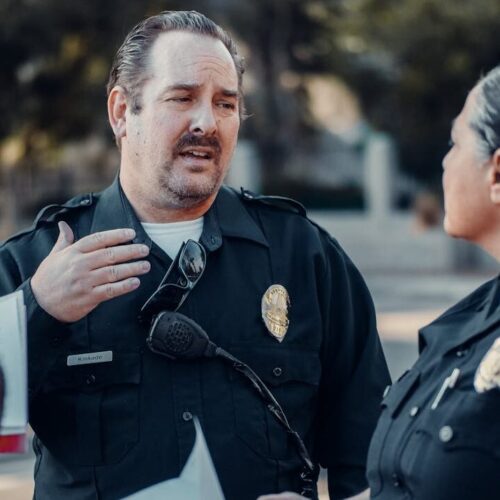
New Analysis Helps States Improve Responses to Youth Who Commit Noncriminal Offenses and Children Who Break the Law
When faced with children and youth who commit status or delinquent offenses, states have a choice to make: will they address those behaviors within the juvenile justice system or through mental health, youth development, education, and other types of systems and related services?
The CSG Justice Center conducted a 50-state scan of how states handle two categories of young people: youth who commit status offenses—behaviors that are not even crimes—and children who typically don’t have the developmental capacity to fully understand the crimes they are committing.
Support or Court: How States Respond to Youth Who Commit Noncriminal Offenses and Children Who Break the Law by the CSG Justice Center, with support from the Prudential and W.T. Grant Foundation, shares overarching takeaways from our scan about these two populations, details whether state responses reflect research and best practices, and proposes a call to action stemming from the findings.
What the Project Involves
In 2023, the CSG Justice Center embarked on a national landscape analysis of how states address youth who commit status offenses—noncriminal behaviors such as truancy, running away, and curfew violations—and younger children who break the law. To conduct the scan, we reviewed state laws and policies; spoke to system leaders in all 50 states; and engaged in conversations with practitioners, researchers, and policy experts across youth-serving systems.
Our nationwide analysis reveals three key findings:
- Most states use some form of police contact, court involvement, and supervision as a response to addressing these youth’s needs.
- State policy and practice treats youth who commit status offenses and younger children who break the law in diverse, confusing, and inconsistent ways.
- Regardless of approach, few states have dedicated structures and funding for these youth (and their families) to obtain needed services.
Support or Court presents the high-level results of this scan in a brief along with two “By the Numbers” documents, which provide more detailed data findings from the policy scan, and a “Checklist of Guiding Principles and State Models” that states can use to strengthen their approaches.
Why It Matters
Research and experience suggest that—as a matter of best practice and to use their resources wisely— states should prioritize the juvenile justice system for youth who commit the most serious offenses and who have the developmental capacity to fully understand the offenses they have committed.
The importance of using the juvenile justice system for this purpose has become more pronounced as youth increasingly struggle with their mental health, school attendance, and community violence and other forms of trauma. Many of these youth may engage in status or low-level delinquent behaviors as an outgrowth of these challenges and exhibit such behaviors at an increasingly younger age. Thus, states must determine what systems, types of interventions, and resource investments can most effectively address these children and youth’s needs while protecting public safety.
By examining their responses to youth who commit noncriminal offenses and children who break the law, policymakers can improve outcomes for these two populations. At the same time, system leaders can engage in a broader rethinking of the purpose of their juvenile justice systems and how best to tackle the underlying causes of increasingly complex and concerning challenges for our nation’s youth
New Hampshire Department of Corrections Commissioner Helen Hanks presents at the Medicaid and Corrections Policy Academy in-person meeting.
Read More Meet the Medicaid and Corrections Policy Academy Mentor States
Meet the Medicaid and Corrections Policy Academy Mentor States
New Hampshire Department of Corrections Commissioner Helen Hanks presents at the Medicaid and Corrections Policy Academy in-person meeting.
Read More Key Findings and Recommendations from Kentucky’s Justice Reinvestment Initiative to Better Understand and Address Domestic Violence
Key Findings and Recommendations from Kentucky’s Justice Reinvestment Initiative to Better Understand and Address Domestic Violence
Almost half of all violent crime in Kentucky is rooted in domestic violence (DV), and nearly 40 percent of people incarcerated in jails and prisons have a history of DV in their background.
Read More Explainer: Key Findings and Options from Arkansas’s Justice Reinvestment Initiative
Explainer: Key Findings and Options from Arkansas’s Justice Reinvestment Initiative
Arkansas policymakers have long expressed concerns about the state’s high recidivism rate. Over the past 10 years, an estimated 72 percent of prison admissions in the state involved people who were revoked from supervision, with unmet substance use and mental health challenges playing a significant role in these failures.
Read More













